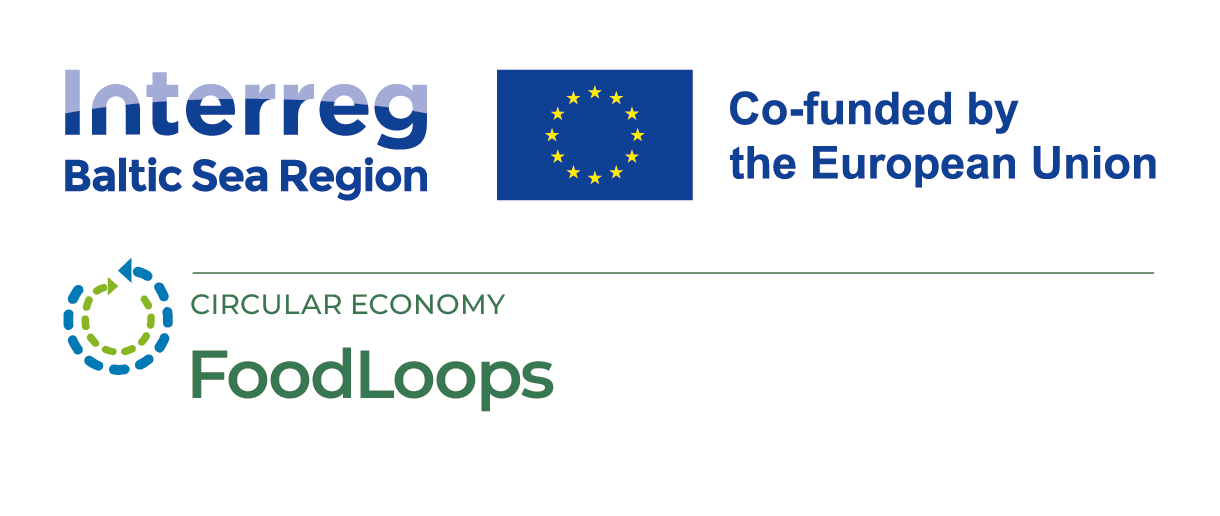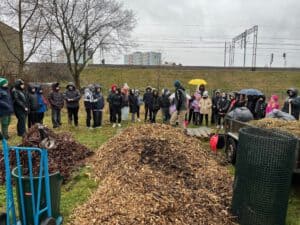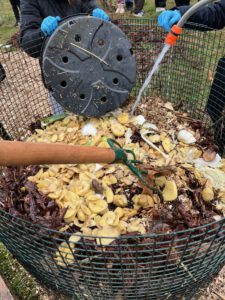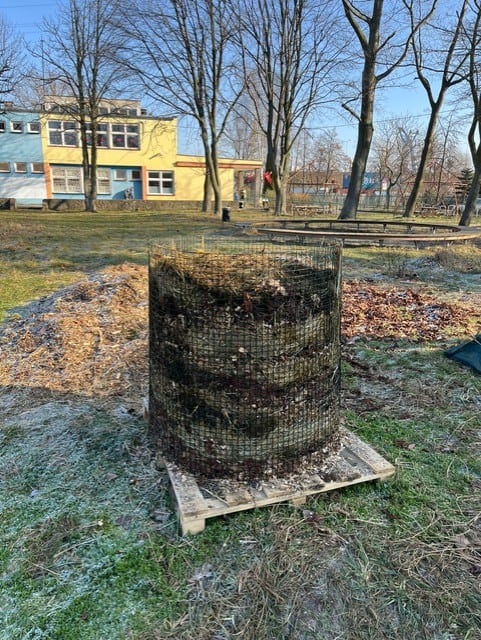
Gdańsk Primary School No. 61 Turns Bio-Waste into Garden Gold with FoodLoops Pilot
15 July 2025
As part of the FoodLoops project—championing source separation, composting, and bio-waste valorisation in schools—Primary School No. 61 in Gdańsk launched a hands-on pilot to transform its green and food waste into fertile compost for a new school garden.
Pilot Setup & Materials
-
Start: January 2025, following an audit of the school’s biowaste streams
-
Compost Method: “Hot” (Berkeley-style) system, two separate piles by mid-March
-
Fractions Layered:
-
Brown: dry leaves, wood chips, straw, cardboard
-
Green: food scraps, peelings, plant trimmings
-
High-Nitrogen: manure (later fresh grass & clover as season allowed)
-
-
Supporting Materials & Tools:
-
Wooden pallet (100×100 cm) & welded mesh cages (10×10 mm and 25×25 mm)
-
Shade cover, compost fork, wide shovel/spade
-
30 buckets (33 L each) to build ca. 990 L pile
-
Water source for moistening and a compost thermometer for monitoring
-
Learning & Engagement
-
First Practical Session: School staff plus ~50 students (grades 3–5)
-
Learned about soil definitions, the compost food-web, and the “why” and “how” of composting
-
Followed a turning and aeration schedule under a local farmer’s guidance
-
-
Ongoing Care: 40 members of the “Nature Around Us” group (grades 3 & 5)
-
Monitored temperature & moisture until June 2025 to ensure safe, high-quality compost
-
10 students met weekly to plant potatoes in school beds and use the finished compost as fertilizer
-
Next Steps in the FoodLoops Curriculum
-
2025/2026 Module: “From Field to Table – The Life Cycle of Potatoes & Ecological Fertilisation”
-
Includes fall potato harvests and lessons on selecting and applying eco-friendly fertilizers
-
Impact & Recognition
This success story underscores FoodLoops’ mission to close the loop on school bio-waste, engage young learners in circular-economy practices, and inspire replicable models across Europe.








